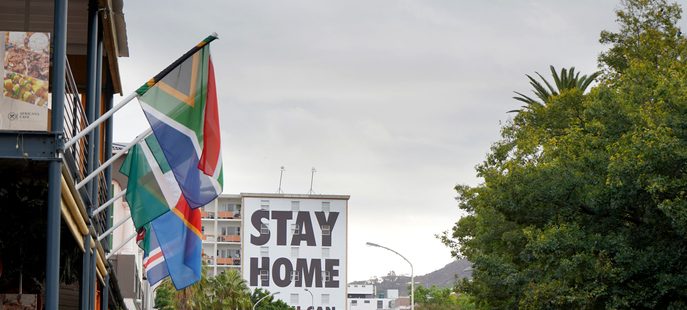Our Opinion: 2021
The risks of vaccine nationalism

The threat of an all-out vaccine war between Britain and the EU appeared to recede last week, with both Boris Johnson and German leader Angela Merkel trying to calm tensions and remember international ‘interdependencies’.
But the spectre of vaccine nationalism is still haunting Europe, following Ursula von der Leyen’s threat of emergency EU controls on vaccine production and distribution to meet the “crisis of the century”. The European Commission president suggested halting exports to countries that did not reciprocate in allowing jabs to flow to the EU, and even activating Article 122 of the EU’s treaty, which authorises emergency measures (in times of war or civil emergency) to control the distribution of essential goods. The British foreign secretary, Dominic Raab, hit back, condemning the brinkmanship. But the story is far from over, and this week the EU said “all options remain on the table”.
This is a global issue. In America, vaccine makers must honour their US official contracts first before exporting. Until last week there was an absolute US ban on all Covid-19 vaccine exports, and on the equipment and ingredients needed to produce the jabs. Only grudgingly has it agreed to start exporting batches to Canada, which had pre-ordered more jabs per head than anywhere in the world but has struggled to get delivery. India is also cutting back on its contracted exports to the UK in the face of a resurgence in Covid-19 cases there.
The pandemic is a shared global catastrophe, and the vaccines that offer solutions are the product of deeply integrated and extensive global supply chains. How ironic, then, that the challenge is driving nations further apart in an every-man-for-himself scramble.
Britain relies on Covid-19 vaccine exports from the EU; ten million doses between 30 January and 16 March alone. But within the EU alone, more than 30 plants from Sweden to Spain are involved in producing the vaccines. AstraZeneca alone has manufacturing capacity in 25 sites across 15 countries. The US firm Moderna produces vaccine ingredients in Switzerland, fills and finishes the doses in Spain, and ships from there to all buyers outside the US. Pfizer, too, has all non-US production situated inside the EU. But one of the vital ingredients of the Pfizer vaccine arrives from a Croda International plant in South Yorkshire.
All this explains the growing fears over a slide towards protectionism, and a rejection of comparative advantage as the governing idea of international trade. It’s often said there are no winners in a trade war. But in this case, there would be a very clear winner: the virus that causes Covid-19.
The lesson the British government is taking from this crisis is the importance of domestic production. If, in a crisis, you can’t be certain that even fellow free-market democracies will honour contracts, then you have to make sure that essential medical supplies are manufactured at home. The havoc wrought by coronavirus has concentrated minds on unexpected shocks and the national vulnerabilities created by complex global supply chain. Where once governments prized ‘agility’ – and just-in-time delivery across borders promised ever greater prosperity – today all the talk is of ‘resilience’ and ‘sovereignty’.
As such, the virus has accelerated an existing trend, in play since at least the 2008 financial crisis. That’s understandable: the virus may be global, but all politics is local, and rising populism has left governments in a defensive crouch. But it’s also dangerous if it drives the world towards protectionism, and nations towards the economic cul-de-sac of self-sufficiency. There are no local fixes for this virus, and nations first over the vaccine finish line will not escape the economic consequences of failing to vaccinate developing nations.
One startling recent study commissioned by the International Chamber of Commerce projected that the global economy stands to lose as much as $9.2trn [global GDP in 2019 was $88trn] if governments fail to ensure developing economy access to Covid-19 vaccines – and that as much as half of that hit would fall on advanced economies. Such figures are necessarily speculative, but suggest the scale of the issue. The most grave damage done by this crisis will be to the “global ecosystem” based on co-operation and trust that is essential for prosperity and progress, according to William Hague, writing in The Daily Telegraph.
If we can’t rise above the temptations of vaccine nationalism, we will be paying a very high price for decades to come.
29th March 2021
